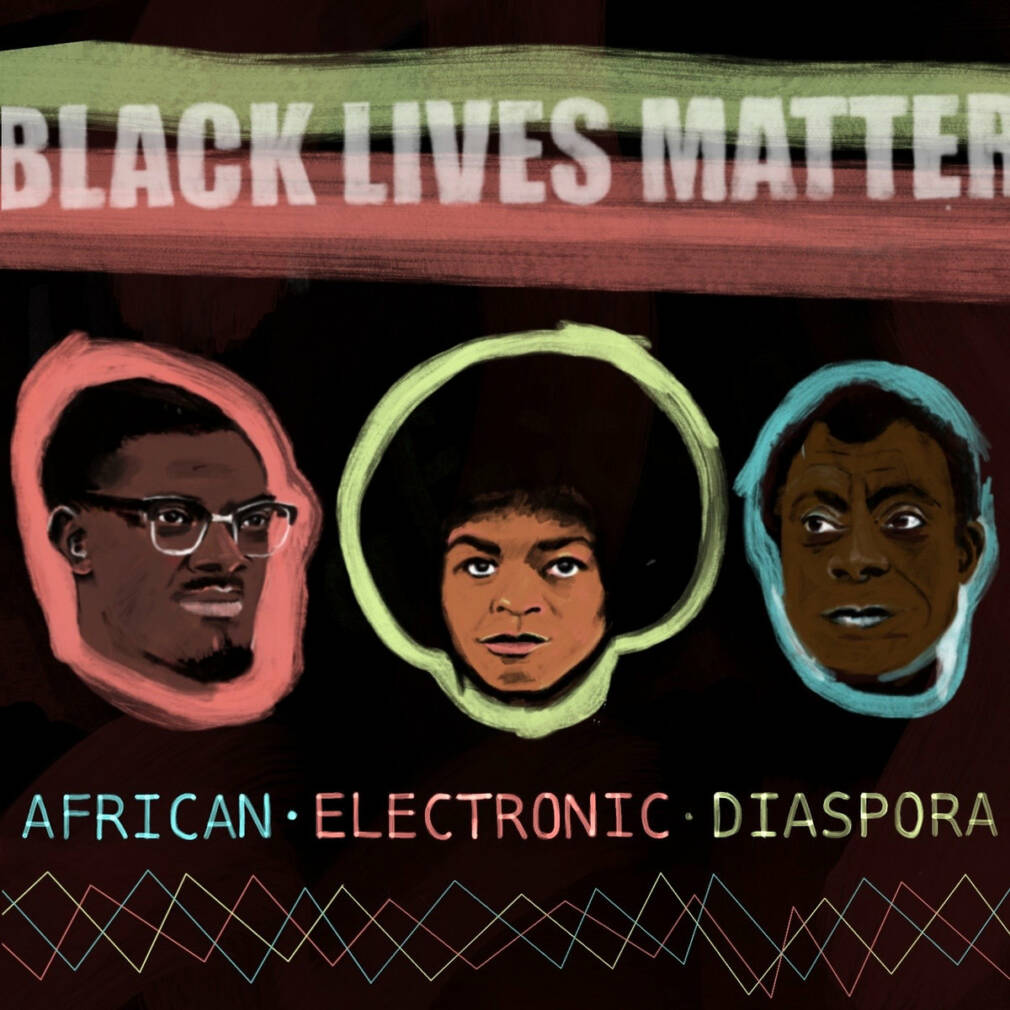The Kenyan producer Monrhea has released the video for “Mama,” an extract from the African Electronic Diaspora, whose objective is to support Black Lives Matter and other organizations fighting against racism.
A member of female:pressure, she is committed to fighting sexism and transphobia in the music industry. For Monrhea, music becomes a tool for solidarity and her skills are put to the service of a greater good. She is also part of the Byte collective, who share their sound through the Currents channel, and organizes musical coding workshops. Her name refers to the idea of depth, something echoed in the introspective music she releases. With a unique mix of techno, bass, hip hop and African polyrhythms, Monrhea is a rare female at the center of the Nairobi scene, inspired by the continent and its diaspora. PAM got the chance to meet her.
What are your main musical inspirations, particularly in electronic music?
Monrhea: I draw inspiration from artists such as DJ Raph and KMRU who show that artists can experiment and try different approaches to music. I am also inspired by African approaches to music such as the use of polyrhythm in the song structure and I have been exploring how to incorporate this in some of my work. A good example would be this track “Mama.” I like the freedom and experimentation I can explore through electronic music, which gives room for creativity.
You were part of the project African Electronic Diaspora, a compilation made in support of the Black Lives Matter movement. Do you think music can help build a real Pan-African movement around the world? And what did you want to bring to this movement with your track “Mama?”
Monrhea: Yes, I do believe that music can help build a real Pan-African movement. Music is known to have a powerful influence on people. It has been used to share messages and bring people together. It is a medium that speaks directly to your mind and soul and, because of this, if we intentionally use music to share information relating to the people or the emotions we feel, then it has the capability to bring people together. The track “Mama” acts as a call to a Mother by her daughter. This can also represent the cry for the liberation of our people.
Has being a woman made it more difficult to lead the club scene? Did you face sexism while building your career?
Monrhea: Yes. I think that this is currently the case but things are definitely changing. For example, I am a member of female:pressure, an organization made up of women, trans and non-binary artists who act as a support system and provide opportunities for each other. I think sexism in the electronic music scene is an institutional issue, which can be seen in the annual research project conducted by female:pressure, which started in 2012 to highlight gender disparity. It focused on bookings for music festivals around the world, which has consistently been male-dominated. With such organizations taking time to highlight these concerns, I am hopeful for a future where women’s voices are well represented in music.
In the video for “Mama,” we are hypnotized by the moving whirlpools in various forms that represent a city. What did you want to symbolize here?
Shivangi Jain (the director): “Mama” instilled a sense of organic, Mother Earth-y vibes in me. I wanted to do something rustic with a city view. All structures turned into amorphous masses of clay when I listened to the music, I just translated it for the screen.
Monrhea: “Mama” is a Swahili (and universal) word for Mother. This track represents a call to a mother from her daughter. The track also invites the listener to reflect on what this term means to them. Not only the qualities of a mother as the female parent, but thinking of our relationship with Mother Earth and the Divine Mother or, more broadly, the idea of femininity. Understanding their qualities and roles in our lives and the world as a whole can give us more space to build our relationships, our care, our respect and also give us time to connect with Earth or Nature and to acknowledge and connect more with our spiritual mother.
The hypnotic visuals themed with earthly colors and the experimental, Afro polyrhythmic nature of the audio provides the space and time to reflect on this. The female voice, or the daughter calling her mother in the track, represents us. As we seek guidance and help from our fathers in our lives and in our spiritual practices, we should call our mother too. The Divine Mother. She has been waiting.
This track was part of the African Electronic Diaspora compilation that brought together mostly electronic Afro-descendant artists from the worldwide diaspora and artists based in their homelands. The aim of the compilation was to raise funds for various (inter)national NGO’s, anti-racism advocacy groups and organizations of Black initiative, with all proceeds to be donated to these causes.
Pre-order African Electronic Diaspora: Black Lives Matter, via Rebel Up! Records.




